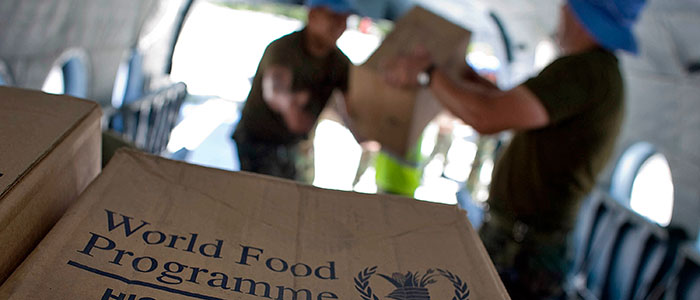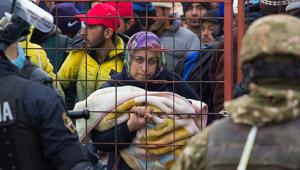Web_WFP_UN_5610334094_5563e1d618_o.jpg

World Food Programme high-energy biscuit delivery. Credit: UN Photo/Logan Abassi
Ambassador Hesham Yousseff, assistant secretary general for humanitarian affairs at the inter-governmental Organisation of Islamic Cooperation, painted a dark picture of the current circumstances in which humanitarian aid works. The first World Humanitarian Summit taking place in May next year is a vital opportunity for the system to change and address these challenges, he said.
Yousseff spoke of a new “world disorder” where political fragility has become normal, entire regions threaten to fail, wars are consistently inconclusive and coloured with superpower rivalry and there are huge differences in opinion on the appropriate solutions to crisis.
He highlighted problems in translating early warnings into early responses, a lack of leadership and failures in finding political resolutions to conflict.
Humanitarian aid systems needed to change to meet these challenges, he said, calling for reforms to vision for aid, its institutions, policies and operations.
Responses should be “as local as possible and as international as necessary”, he said, with intermediaries between funds and assistance reduced as much as possible.
More effective responses will need greater resources and new ways of financing and more support from the international donor community is also required. Governments needed to be encouraged to invest more in resilience and preparedness and that the culture within many countries’ political systems of only responding once a crisis is already underway needs to be eliminated.
In addition, humanitarian efforts need to be backed up with political will and the political obstacles to aid and resolution to conflict need to be reduced.
He noted, for example, that many NGOs working in dangerous conditions are hampered in their activities by increasingly strict counterterrorism laws which risk casting them as cooperating with terrorists in their work.
In conflict-resolution situations the question of which state and non-state actors to include is immensely politically charged, and removing that dimension from efforts will be challenging, he said.
The Organisation of Islamic Cooperation has 57 member nations spread throughout the Middle East, Africa and Asia.













